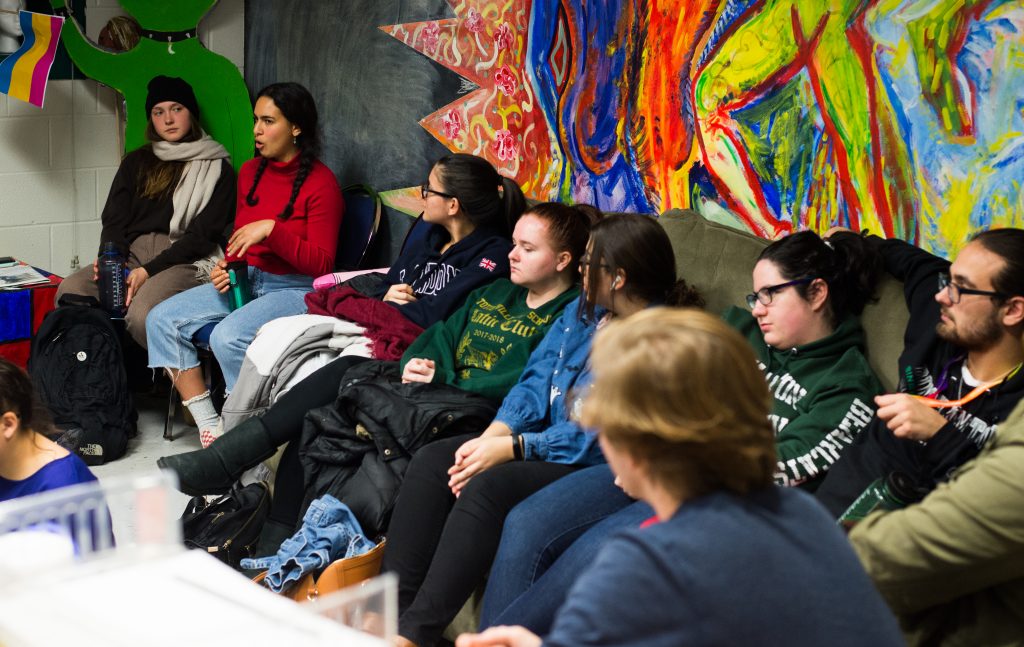In honor of Domestic Violence Awareness Month, the Women’s Student Union (WSU), College Progressives and Rainbow Pride Union (RPU) came together to host a discussion about domestic violence and the way it is viewed and reinforced by current culture.
Roughly 30 students gathered on Thursday evening in the University Union. They were joined by Haley Murphy, a representative of the Crime Victims Assistance Center, a local organization that provides support for victims through counseling and educational programming.
Sarah Voegler, president of RPU and a senior majoring in history, said the purpose of the event was to look at domestic violence from different perspectives.
“Our main goal tonight is to take a look at domestic violence, since it is the theme of the month, and to really dissect the mainstream depictions of it and the kind of traditional narrative of describing domestic violence, looking at how that can be problematic and also looking at it for people whose voices may not typically be heard,” Voegler said.
Erica Prush, president of WSU and a senior majoring in English, and Sarah Wood, vice president of WSU and a senior majoring in human development, led the discussion. However, attendees participated in the talk by discussing how domestic violence is sometimes romanticized in media and how there is little media representation of domestic violence in minority groups.
They also discussed Binghamton University’s attempts at addressing domestic violence and sexual assault, such as the events dedicated to these issues at orientation. The attendees discussed early signs of domestic abuse, which, according to Murphy, include isolating one’s partner, getting angry over trivial things and guilt-tripping.
Murphy also touched on the cycle of abuse, a term for when an abuser tries to counteract their verbal or physical abuse with gifts and reassuring they won’t do it again, whereafter things return to normal until the cycle repeats.
Jacob Chank, a senior majoring in history, said attending the event was important for him, as a male, in order to learn more about what he can do to thwart the effects of domestic violence.
“Personally, I think that, as a man complicit in patriarchy, it’s important to support women and nonbinary folks in spaces like these and try to actively counteract the oppressions that you might knowingly or unknowingly bring forth,” Chank said. “I hope that this leads to good discussion about domestic violence, especially on our campus.”
Jacqueline Carey, a junior majoring in psychology, said the groups hosted a safe place to discuss the multidimensional issues of domestic violence.
“I thought of new things that I didn’t think of when considering domestic violence,” Carey said. “It’s nice to talk about serious issues in a space where it’s OK to be wrong sometimes, because then you’ll be corrected and no one will attack you and that’s good.”
Voegler said the event was able to touch on issues that involve members of the co-hosting student groups.
“The event was a really great collaboration of the three groups,” Voegler said. “It was able to touch on attributes that affect not only the queer community, but also the constituencies of each of our three groups, so that was a really great moment. And I also just liked the format of the meeting because it was very Socratic, almost when people had a thought, they could just say it. It was a safe and comfortable space, so that’s always a plus.”



